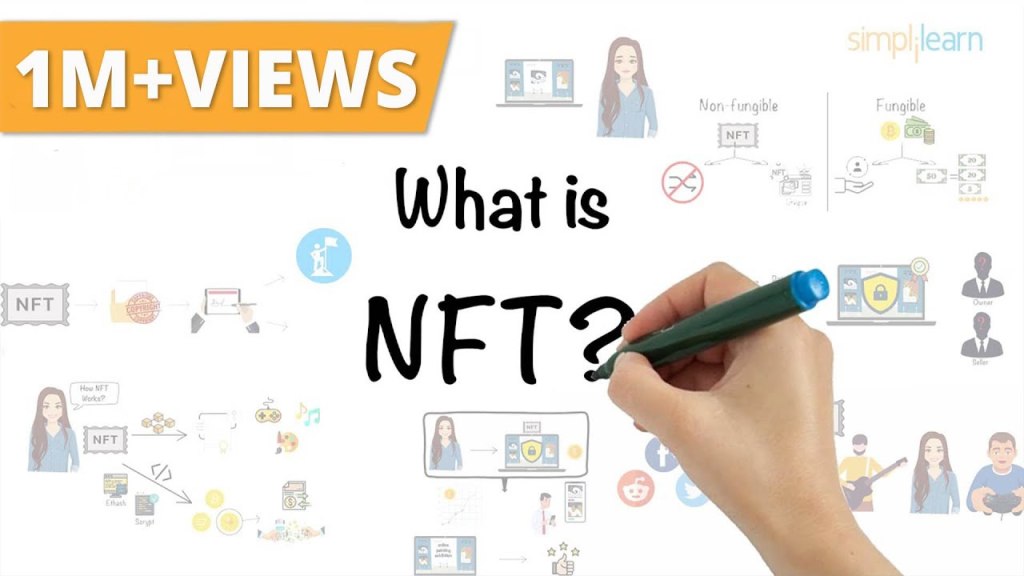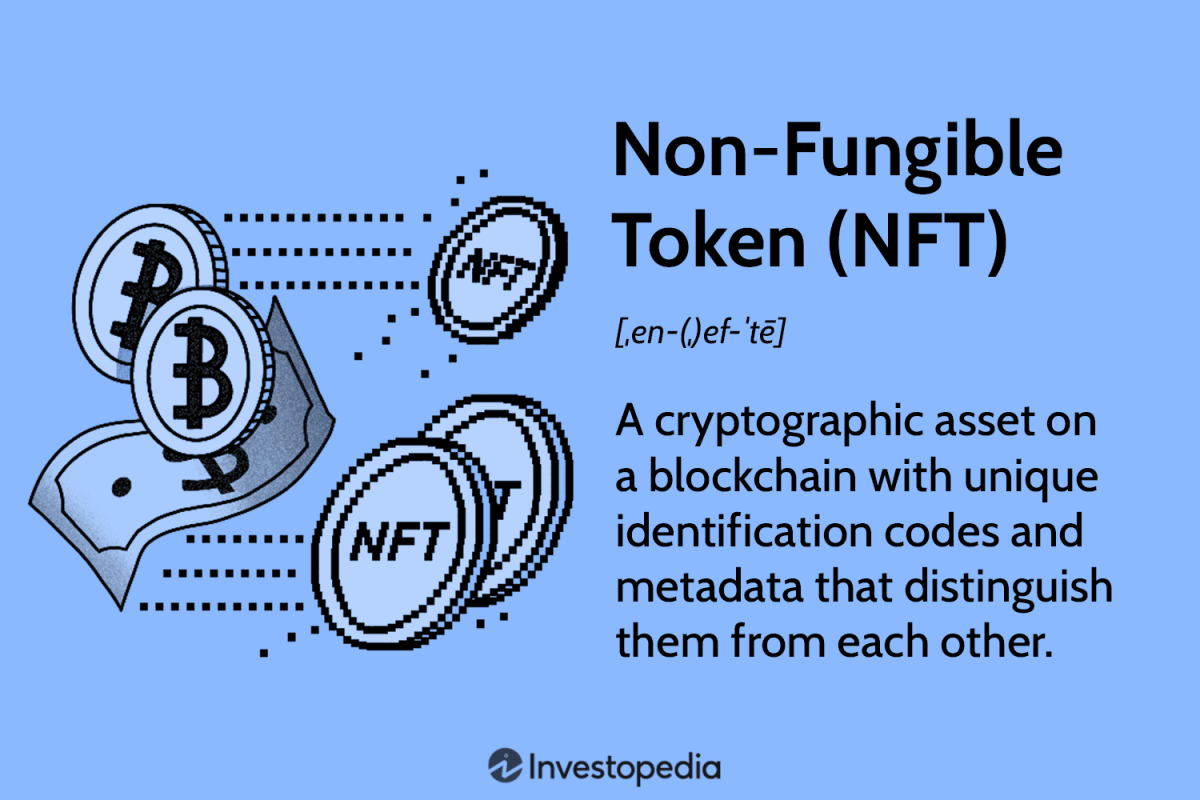NFT How It Works
Introduction
Welcome, NFT Enthusiasts! In this article, we will delve into the fascinating world of NFTs and explore how they work. NFTs, or Non-Fungible Tokens, have taken the digital art and collectibles market by storm, revolutionizing the way we perceive and trade unique digital assets. Whether you are an artist, collector, or simply curious about this emerging technology, this article will provide you with a comprehensive understanding of NFTs and their inner workings. So, let’s dive in!
What is an NFT?
🔍 At its core, an NFT is a digital asset that represents ownership or proof of authenticity of a unique item, whether it’s a piece of art, music, video, or any other digital content. Unlike cryptocurrencies such as Bitcoin or Ethereum, which are fungible and can be exchanged on a one-to-one basis, NFTs are indivisible and unique.

Image Source: i-scmp.com
🔍 NFTs are built on blockchain technology, which ensures transparency, security, and immutability. Each NFT is recorded on a blockchain, providing an unalterable and permanent record of its ownership history and transactions.
🔍 The value of an NFT is derived from its scarcity, desirability, and the demand in the market. People are willing to pay significant amounts for NFTs because they believe in their uniqueness and the bragging rights associated with owning a one-of-a-kind digital item.
🔍 NFTs have opened up new possibilities for artists, creators, and collectors to monetize their work in the digital realm, transcending the limitations of physical mediums and traditional art markets.

Image Source: ytimg.com
🔍 Now that we have a basic understanding of what NFTs are, let’s explore further the various aspects of how they work.
Who Can Create and Buy NFTs?
🔍 Anyone can create an NFT, whether you’re an established artist, a musician, a content creator, or even an enthusiast with a unique digital item to offer. Platforms like Ethereum-based marketplaces allow creators to mint and sell their NFTs to a global audience.

Image Source: investopedia.com
🔍 Likewise, anyone can buy NFTs, provided they have a digital wallet and access to a blockchain marketplace. NFTs can be purchased using cryptocurrency, typically Ethereum, and stored securely in a digital wallet.
🔍 The open nature of the NFT market allows for a diverse range of creators and buyers, fostering a vibrant ecosystem where art, culture, and creativity thrive.
When Did NFTs Gain Popularity?
🔍 The concept of NFTs has been around for several years, but it gained significant popularity in early 2021. The explosion of mainstream media coverage, celebrity endorsements, and high-profile NFT sales catapulted NFTs into the limelight.
🔍 The digital art world witnessed a paradigm shift as renowned artists, musicians, and creators started embracing NFTs as a revolutionary way to monetize and distribute their work. This increased exposure and adoption led to a surge in interest and investment in the NFT market.
🔍 While NFTs have become a buzzword recently, their potential impact and longevity are still being explored. Only time will tell how the NFT landscape continues to evolve.
Where Can You Find and Trade NFTs?
🔍 NFTs are primarily traded on blockchain-based marketplaces where artists and creators list their digital assets for sale. Some popular NFT marketplaces include OpenSea, Rarible, SuperRare, and NBA Top Shot.
🔍 These platforms provide a decentralized and transparent environment for buying, selling, and trading NFTs. Users can explore a wide range of digital artworks, collectibles, and other unique creations.
🔍 Additionally, various industries are starting to incorporate NFTs into their ecosystems, such as music platforms, gaming networks, and virtual reality experiences. This expansion opens up new avenues for NFT enthusiasts to discover and engage with unique digital content.
Why are NFTs Gaining Popularity?
🔍 NFTs offer several advantages and unique opportunities:
🌟 Digital Ownership: NFTs allow individuals to own digital assets securely, proving their ownership and authenticity.
🌟 Direct Monetization: Artists and content creators can receive direct royalties from the sale of their NFTs, eliminating intermediaries and empowering them financially.
🌟 Global Reach: NFTs provide a global marketplace, enabling creators to connect with a broader audience and fans from all over the world.
🌟 Fan Engagement: NFTs create new ways for fans to engage with their favorite artists, participate in auctions, and collect limited edition digital items.
🌟 Innovation and Experimentation: NFTs encourage innovation in art, music, and other creative industries, pushing boundaries and exploring new possibilities.
What Are the Disadvantages of NFTs?
🔍 It’s essential to consider the potential downsides of NFTs:
🌟 Environmental Impact: The energy consumption associated with blockchain networks, particularly Proof-of-Work systems, has raised concerns about the carbon footprint of NFTs.
🌟 Volatility and Speculation: The NFT market can be highly volatile, with prices fluctuating rapidly, making it challenging to predict long-term value.
🌟 Copyright and Intellectual Property: NFTs raise questions about the ownership and licensing of digital content, leading to legal and ethical debates.
🌟 Market Saturation: With the increased popularity of NFTs, some worry about oversaturation and the potential devaluation of digital assets.
🌟 Accessibility and Affordability: The current dominance of Ethereum-based NFTs can exclude individuals who are unable to access cryptocurrencies or face high transaction fees.
Frequently Asked Questions (FAQ)
1. Are NFTs only limited to digital artworks?
🔍 No, while digital art is a popular use case for NFTs, they can represent any unique digital asset, including music, videos, virtual real estate, collectibles, and more.
2. Can I sell an NFT I purchased?
🔍 Yes, one of the advantages of owning an NFT is that you can sell it on various marketplaces, allowing you to potentially earn a profit if the value of the NFT increases.
3. Can I transfer ownership of an NFT?
🔍 Absolutely! NFTs are designed to be transferable, and ownership can be easily transferred from one person to another through blockchain transactions.
4. Can I create my own NFT marketplace?
🔍 Yes, there are platforms and protocols available that allow users to create their own NFT marketplaces, providing opportunities to curate and sell unique digital assets.
5. Are NFTs a bubble or a long-term investment?
🔍 The long-term sustainability and value of NFTs are still uncertain. While some argue that it’s a speculative bubble, others believe that NFTs have the potential to revolutionize the art and collectibles market for years to come.
Conclusion
🔍 In conclusion, NFTs have ushered in a new era of digital ownership, empowering artists, creators, and collectors in unprecedented ways. The blockchain technology behind NFTs ensures transparency, security, and authenticity, revolutionizing the art and collectibles market.
🔍 However, it’s crucial to navigate the NFT landscape with caution, considering both the advantages and disadvantages. The future of NFTs holds immense possibilities, and only time will reveal the true impact of this groundbreaking technology.
Remember, whether you’re an artist looking to showcase your work, a collector searching for unique digital assets, or simply curious about the NFT phenomenon, exploring the world of NFTs can be an exciting and rewarding journey. Embrace the revolution, and let your imagination run wild in the digital realm!
Final Remarks
🔍 The information provided in this article is for educational and informational purposes only and should not be considered as financial or investment advice. As with any investment, it’s essential to conduct thorough research and exercise caution when participating in the NFT market. The NFT landscape is constantly evolving, and it’s crucial to stay informed and make informed decisions based on your personal circumstances and risk tolerance.
🔍 Additionally, please note that the specific platforms, marketplaces, and technologies mentioned in this article are provided as examples and do not constitute endorsements. It’s essential to conduct independent research and choose reputable platforms and marketplaces when engaging with NFTs.